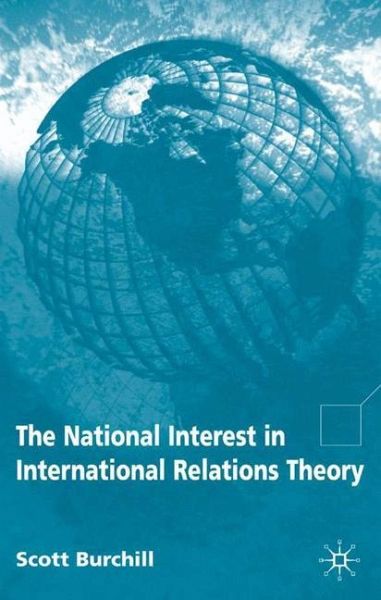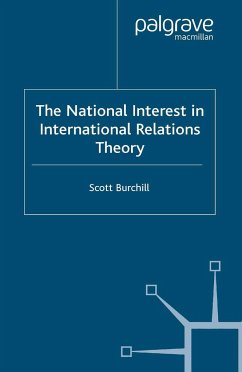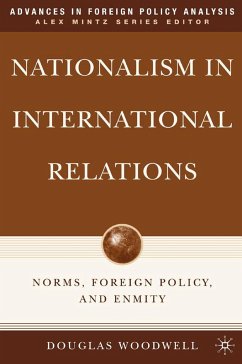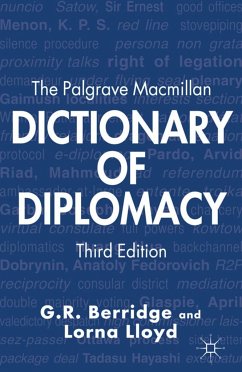
The National Interest in International Relations Theory
Versandkostenfrei!
Versandfertig in 6-10 Tagen
38,99 €
inkl. MwSt.
Weitere Ausgaben:

PAYBACK Punkte
19 °P sammeln!
This is the first systematic and critical analysis of the concept of national interest from the perspective of contemporary theories of International Relations, including realist, Marxist, anarchist, liberal, English School and constructivist perspectives. Scott Burchill explains that although commonly used in diplomacy, the national interest is a highly problematic concept and a poor guide to understanding the motivations of foreign policy.














